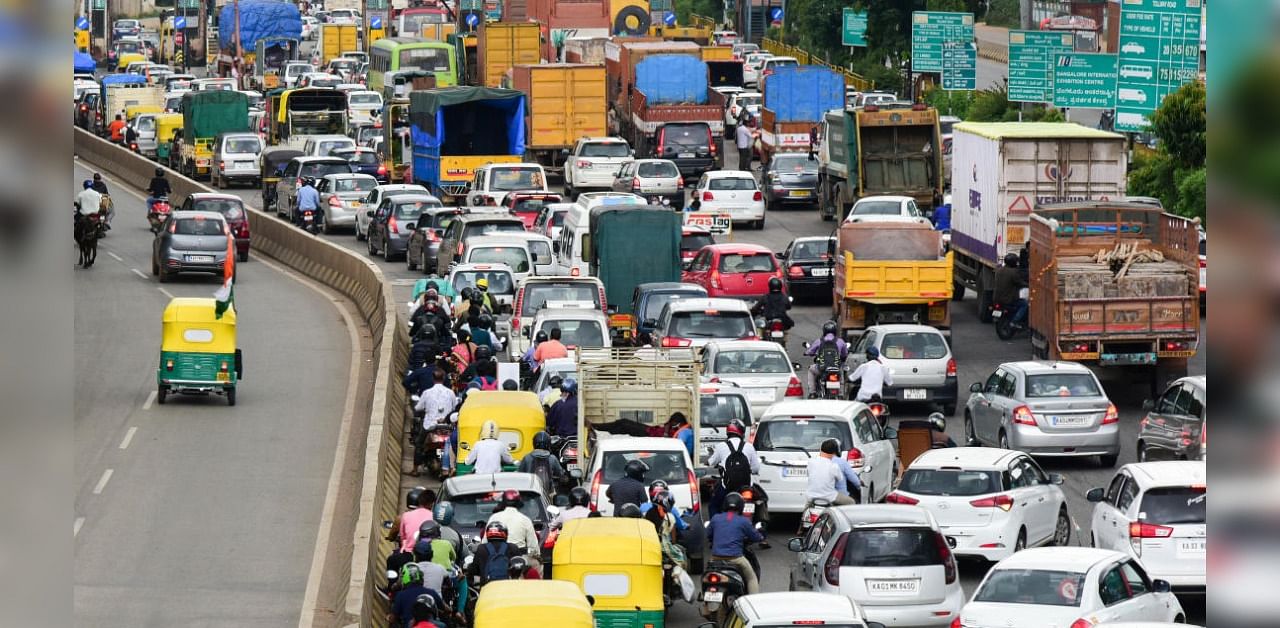
Bengaluru's notorious traffic congestion is taking a toll on health and productivity, with each of its residents losing an average Rs 52,264 per year on medication and for measures taken to avoid the congestion.
In a study on the impact of pollution on productivity in Bengaluru, researchers from the Institute of Social and Economic Change (ISEC) analysed the direct link between vehicle population, congestion and health of people.
ISEC student Vijayalakshmi S and Prof Krishna Raj interviewed 427 people who travelled in different modes, including bus, metro, two-wheelers and cars, for the study, 'Economic Estimation of Health and Productivity Impacts of Traffic Congestion: A case of Bengaluru City'.
Those travelling in their own vehicles fared worse with 37% of respondents complaining of asthma, while nearly 47% to 50% reported stress, respiratory issues, back pain and other illness.
As expected, those travelling in metro fared better, with only 22% reporting issues like asthma, though 40% said they had respiratory problems and 55% reported stress and blood pressure.
"All these respondents have shifted to metro from other modes recently. While they did report an improvement in health, they had to pay additional cost in metro fare and last mile cost," Vijayalakshmi said.
Apart from the expenditure on medicine (seen as direct cost), the study included the days of sick leave and additional expenditure spent by commuters on preventive/mitigative measures to avoid congestion.
The researchers estimated the cost of illness by adding up the average cost of medication (Rs 4,944 per year), the average loss of productivity (Rs 15,520 per year) and preventive measures cost (Rs 31,800 per year). On an average, a commuter loses Rs 52,264 per year directly due to congestion, they noted.
Krishna Raj said policy interventions were urgently needed to push Bengaluru towards a healthy path. "Thousands of work hours are lost and many people suffer for life. Urgent interventions are needed to find a solution," he said.
For Vijayalakshmi, the solution was in public transport though she noted that the pandemic needs to end before the government can look at metro and bus as a solution.